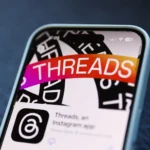A high-stakes legal battle is unfolding in the tech and literary worlds, as a federal judge has ruled that a copyright lawsuit brought by prominent authors against Meta can move forward — though not without some limitations. The lawsuit, Kadrey vs. Meta, has drawn significant attention as it delves into the contentious issue of whether tech giants can use copyrighted materials to train artificial intelligence models without explicit permission.
The Lawsuit: Authors vs. Meta
Authors Richard Kadrey, Sarah Silverman, and Ta-Nehisi Coates are among the plaintiffs who accuse Meta of using their books to train its Llama AI models, allegedly without proper authorization. The authors claim that Meta not only used their works without consent but also deliberately stripped the books of copyright management information (CMI) to obscure the potential infringement.
According to the lawsuit, this removal of CMI was a calculated move to prevent the AI from generating outputs that might reveal the copyrighted origins of its training data. Essentially, the authors allege that Meta wanted to ensure that Llama’s outputs wouldn’t inadvertently disclose the use of copyrighted texts, making it harder for creators to detect any unauthorized usage of their works.
Meta’s Defense: Fair Use and Lack of Standing
Meta has pushed back against the accusations, arguing that their AI training practices fall under the umbrella of fair use — a legal doctrine that allows limited use of copyrighted material without permission under certain circumstances. The company also contended that the authors lacked the legal standing to bring the case to court, claiming that the plaintiffs hadn’t demonstrated a concrete injury.
However, U.S. District Judge Vince Chhabria disagreed with Meta’s stance. In a ruling issued on Friday, Chhabria stated that the allegation of copyright infringement constitutes “obviously a concrete injury sufficient for standing.” He further noted that the authors had adequately alleged that Meta intentionally removed CMI to conceal potential copyright violations.
Judge Chhabria’s Ruling: A Partial Win for Both Sides
While the judge allowed the copyright infringement claims to proceed, he dismissed the authors’ allegations under the California Comprehensive Computer Data Access and Fraud Act (CDAFA). The reason? The authors didn’t claim that Meta accessed their computers or servers directly — only their data, in the form of their published works. This technical distinction meant that the CDAFA claims didn’t hold up in court.
Despite the partial dismissal, the ruling is a significant step forward for authors seeking to protect their intellectual property rights in the age of AI. Judge Chhabria acknowledged that the allegations, taken as a whole, raised a “reasonable, if not particularly strong inference” that Meta intentionally removed copyright information to avoid detection of copyrighted material in the AI’s outputs.
The Bigger Picture: AI and Copyright Battles
This lawsuit is just one piece of a larger puzzle. As AI technology continues to evolve, courts across the United States are grappling with similar cases. The New York Times, for example, is currently suing OpenAI, alleging that the company used its articles without permission to train ChatGPT.
These legal battles could set important precedents for how AI companies approach content acquisition and copyright compliance. If courts ultimately rule in favor of authors and publishers, tech companies may be forced to overhaul their training processes, license copyrighted materials, or face significant financial and reputational consequences.
For authors, journalists, and other content creators, these cases represent a critical line of defense against what they see as unchecked exploitation of their intellectual labor. Many argue that AI companies are profiting from creators’ work without compensation, effectively undermining the value of original content.
What Comes Next?
As the case moves forward, both sides are likely to present more detailed arguments and evidence. Meta may double down on its fair use defense, while the authors could seek discovery to uncover internal communications or technical details that strengthen their claims. If the lawsuit proceeds to trial, it could provide unprecedented insights into how AI models are trained and how tech companies balance innovation with legal and ethical considerations.
One thing is clear: the outcome of Kadrey vs. Meta could reverberate across the tech industry, influencing how AI models are developed and whether creators can truly safeguard their work in a digital landscape that’s evolving faster than the law itself.
In a world where AI is reshaping creativity and commerce, this case could help determine where the boundary lies between inspiration and infringement — and whether tech giants like Meta will be held accountable when they cross that line.
Stay tuned as we continue to follow this landmark legal showdown and its implications for the future of AI, intellectual property, and the creative economy.










